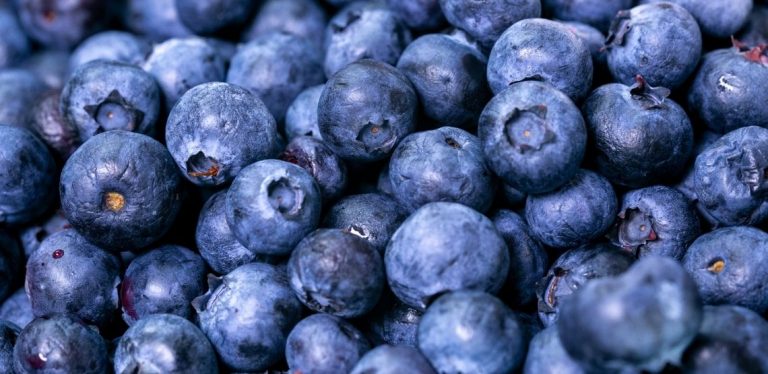Our Favorite Brain Healthy Foods
There are many ways to protect the health of your brain as you age, from daily walks to mind teaser puzzles. Today, I'm going to share another powerful tool you have when it comes to supporting brain health: the food you put on your plate!
Every cell in your body, including your brain, is made up of the foods you eat. That means that you have several chances every day to eat foods that are going to help build the healthiest brain possible.
What types of foods are going to be best to support your brain health? You want to look for foods that are high in omega-3 fats, loaded with antioxidants and trace minerals, and contain probiotics to support the health of your microbiome.
Keep reading to find the top five brain healthy foods!
Salmon
You may not know this, but your brain is made up of about 60% fat. Of those fats, most of them are the essential omega-3 fatty acids DHA and EPA. Wild-caught salmon is a great source of both omega-3s. In order to build brain and nerve cells, you need to make sure you are getting enough protein and fats to provide the materials. Enjoying fatty cold-water fish such as salmon, trout, sardines, and mackerel will provide you with all the nutrients you need to build a fat and healthy brain.
One study found that folks who ate fish once a week had a 10% slower rate of mental decline, and for those who ate fish twice a week, it rose to 13% compared to people who don't eat fish at all.
In case you needed more reason to eat omega-3-rich fatty fish, research has shown that low levels of these essential fats in the diet have been linked to depression and learning impairments.
Other plant-based sources of omega-3 fats include:
- Walnuts
- Flaxseed and oil
- Hemp seeds and oil
Pumpkin Seeds
I love adding toasted pumpkin seeds to my salads, not only because they taste great but because they also have great health benefits for the brain. These little seeds are packed with healthy fats, antioxidants, and minerals. Specifically, they are a great source of three brain-loving minerals: magnesium, zinc, and copper.
Zinc: Research shows that our brains need zinc for proper signaling between neurons and brain cells. There has also been a connection found between zinc deficiency and neurological conditions such as depression, Parkinson's disease, and even Alzheimer's disease.
Magnesium: This mineral is one of my favorite nutrients and is used for over 300 enzymatic functions in the body. When it comes to brain health, magnesium supports memory and learning abilities. Like zinc, deficiencies in magnesium are linked to neurological issues such as depression, epilepsy, and migraines.
Copper: When it comes to brain health, copper helps to control nerve and neuron signaling.
Blueberries
Blueberries are one of the most powerful fruits you can incorporate into your diet. They are packed with antioxidants, which can help protect your body from inflammation and oxidative damage.
New studies link inflammation in the brain to neurodegenerative diseases and conditions, such as depression, so add some blueberries to your diet to help protect your brain for the long term!
Related Search Topics (Ads)
Sauerkraut
The link between gut and brain health is becoming clearer as scientists look at how they communicate with one another. The gut is even called the second brain because it makes so many necessary mood-balancing neurotransmitters, such as serotonin and dopamine.
Many studies show that what happens in the digestive system can impact what happens in the brain and vice versa. A healthy microbiome, the community of beneficial bacteria in the gut, affects everything from stress to anxiety and depression. It may also play a role in preventing and treating brain disorders such as Parkinson's and Alzheimer's disease.
One of the best ways to support your gut and brain health is by including fermented foods in your diet. When it comes to fermented foods, a little goes a long way, and you don't need huge servings to get all the benefits. If you're not a fan of sauerkraut, you can try including other probiotic foods in the diet, such as:
- Kombucha
- Apple cider vinegar
- Lacto-fermented vegetables
- Kimchi
- Yogurt
- Kefir — made from milk or water!
- Jun tea
This list includes just a few of the great fermented options out there, so don't be afraid to get creative. If you're buying your probiotic foods, make sure that they are unpasteurized or raw. The pasteurization process kills off all the beneficial bacteria, so you will miss out on the health benefits.
Turmeric
This beautiful golden spice is a staple in Indian cooking. It has become popular in North America thanks to its powerful antioxidant benefits. The active component in turmeric is called curcumin. It is responsible not only for its vibrant color but also for many of its health benefits.
Curcumin has many brain positive benefits such as:
Boosting memory: Studies have found that it improves memory in people with Alzheimer's disease.
Decreasing symptoms of depression: Animal studies have found that curcumin boosts serotonin and dopamine. These are the two neurotransmitters required for balancing mood and preventing depressive episodes. A meta-analysis of six clinical trials found that curcumin improved depression symptoms and had anti-anxiety effects without causing any negative side effects.
Grows new brain cells: Scientists are currently looking at the possibility of using curcumin to help stimulate new neuron growth in the brain, with promising results.
To make sure you absorb the benefits of curcumin, it's best to consume it with a small amount of black pepper and a healthy fat, such as coconut oil.
As you can see, there are loads of foods that can help support a healthy brain. Incorporating these five delicious options into your diet regularly will set you up for a healthy brain and nervous system for years to come!

